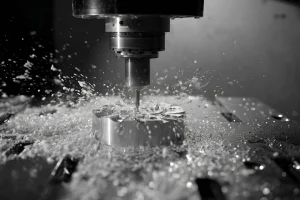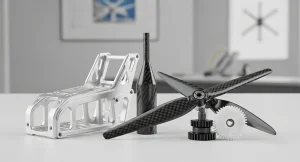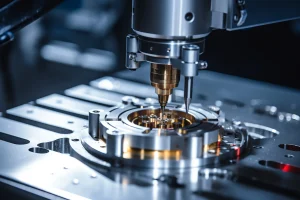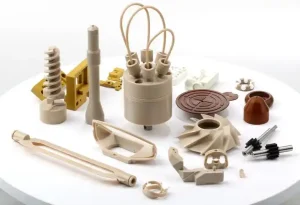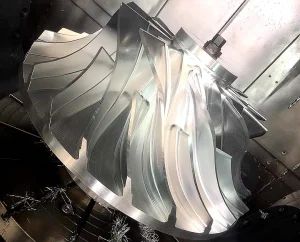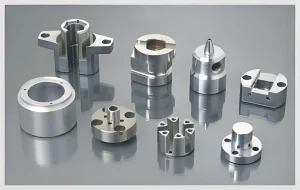What Are Aluminum Alloy Parts?
Aluminum alloy parts are components made from alloys in which aluminum is the primary metal, combined with other elements such as copper, magnesium, silicon, and zinc. These alloys are designed to enhance the properties of pure aluminum, making them suitable for a wide range of applications.
The key characteristics of aluminum alloy parts include lightweight, high strength-to-weight ratio, excellent corrosion resistance, good thermal and electrical conductivity, and outstanding formability. Their low density makes them about one-third the weight of steel, which is crucial for applications where weight reduction is essential, such as in the aerospace and automotive industries.
Aluminum alloy parts find extensive use in numerous fields. In aerospace, they are used to construct aircraft frames, wings, and engine components, contributing to fuel efficiency and overall performance. The automotive industry utilizes these parts for engine blocks, wheels, and body panels to reduce vehicle weight and improve fuel economy. Additionally, they are prevalent in the electronics sector for heat sinks and casings due to their excellent heat dissipation properties. In architecture, aluminum alloy window frames, doors, and curtain walls offer durability and aesthetic appeal. The marine industry also benefits from their corrosion resistance for boat hulls and fittings. Overall, aluminum alloy parts have become an integral part of modern manufacturing, driving innovation and efficiency across various sectors.
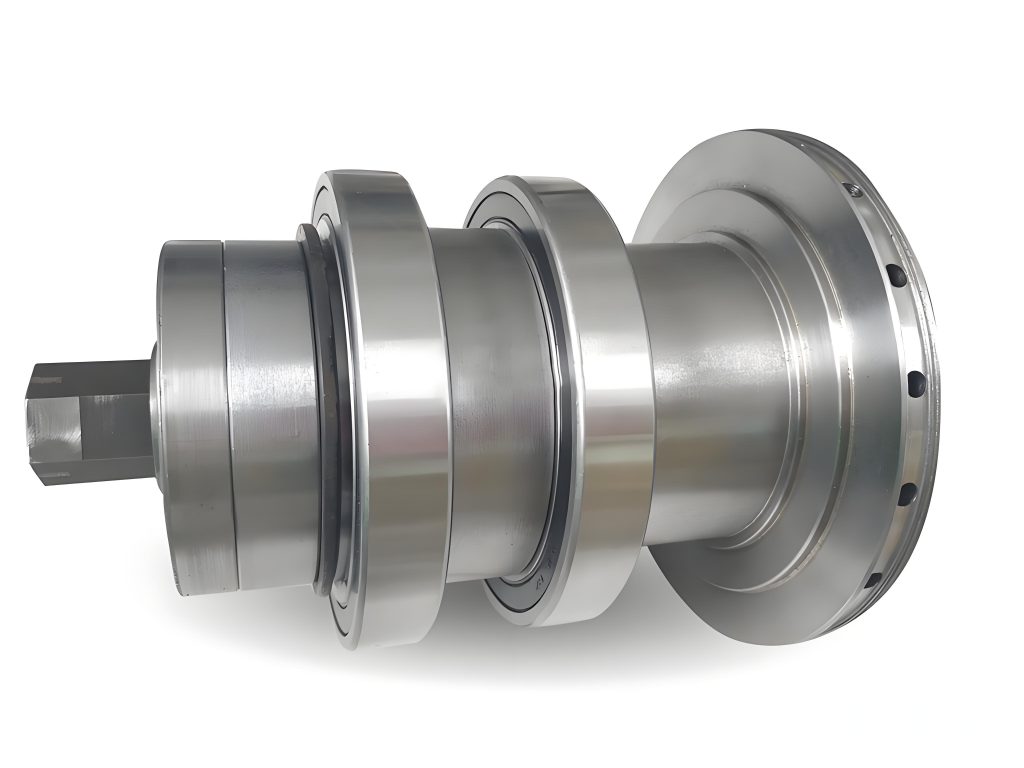
The Significance of Precision in Aluminum Alloy Parts Processing
Precision is of utmost importance in aluminum alloy parts processing. High precision is essential for several reasons. Firstly, it directly impacts the performance and functionality of the final product. In the aerospace industry, for example, even the slightest deviation in the dimensions of an aircraft wing component made from aluminum alloy can lead to aerodynamic inefficiencies, increased fuel consumption, and compromised flight safety.
Secondly, precision machining ensures proper fit and assembly. In automotive engines, where aluminum alloy parts are extensively used, precise tolerances are necessary for components like pistons, cylinders, and crankshafts to work together seamlessly. This not only enhances the engine’s power output and reliability but also reduces wear and tear, prolonging its lifespan.
Moreover, in electronics, where aluminum alloy heat sinks and casings are common, precise manufacturing is crucial for effective heat dissipation. A poorly machined heat sink with uneven surfaces or incorrect dimensions may not efficiently transfer heat away from sensitive electronic components, leading to overheating and potential device failure.
In the medical field, precision in aluminum alloy parts used in surgical instruments and implants is a matter of life and death. Implants need to fit perfectly within the human body to avoid complications and ensure proper healing. Overall, achieving high precision in aluminum alloy part processing is non-negotiable for industries aiming to deliver top-quality, reliable, and safe products.
Key Processing Technologies for Aluminum Alloy Parts
Machining Processes
Machining processes play a crucial role in shaping aluminum alloy parts. Turning is a fundamental operation where a cutting tool removes material from a rotating workpiece to create cylindrical features. For example, in the production of aluminum alloy shafts for machinery, precise turning is essential to achieve the required diameter and surface finish. CNC turning machines offer high precision and repeatability, enabling the production of complex geometries with tight tolerances.
Milling involves the use of rotary cutters to remove material from a workpiece. It can create flat surfaces, slots, and intricate shapes. In the manufacturing of aluminum alloy aerospace components, milling is used to produce wing ribs and engine mounts. High-speed milling with advanced tooling allows for rapid material removal while maintaining accuracy.
Drilling is the process of creating holes in the workpiece. Whether it’s for fastening purposes or to accommodate other components, precise drilling is vital. In the electronics industry, when manufacturing aluminum alloy heat sinks, small and accurately placed holes are needed for mounting electronic components. CNC drilling machines ensure consistent hole diameters and positions.
These machining processes benefit greatly from CNC technology. CNC machines follow programmed instructions, reducing human error and increasing productivity. They can operate continuously, producing parts with high precision and consistency. For example, a CNC milling machine can execute complex toolpaths to create 3D shapes in aluminum alloy parts, meeting the stringent requirements of industries like automotive and medical.
Heat Treatment
Heat treatment is a critical step in enhancing the properties of aluminum alloy parts. Annealing is used to relieve internal stresses caused by machining or casting. This process softens the alloy, making it more ductile and easier to further process. For instance, in the production of aluminum alloy cookware, annealing helps to prevent warping during subsequent forming operations.
Solution treatment, also known as quenching, involves heating the alloy to a specific temperature to dissolve alloying elements into the aluminum matrix. The rapid cooling then locks these elements in place, increasing the alloy’s strength. In the aerospace industry, solution-treated aluminum alloy parts are used in structural components to withstand high loads.
Aging, or precipitation hardening, follows solution treatment. It involves heating the quenched alloy at a lower temperature to allow fine precipitates to form, further enhancing its strength and hardness. This process is carefully controlled to achieve the desired mechanical properties. For example, aluminum alloy bicycle frames may undergo aging to provide the right balance of strength and weight.
The choice of heat treatment method depends on the specific alloy composition and the desired end-use properties. Different aluminum alloys respond differently to heat treatment, and precise control of temperature, time, and cooling rates is essential to achieve optimal results.
Surface Treatment
Surface treatment of aluminum alloy parts serves multiple purposes. Anodizing is one of the most common methods. It creates a thin, hard oxide layer on the surface, improving corrosion resistance and providing a base for coloring. In architecture, anodized aluminum alloy window frames and curtain walls not only look aesthetically pleasing but also withstand outdoor elements.
Painting and coating offer additional protection and decorative options. A layer of paint can prevent oxidation and provide a customized finish. In the automotive industry, aluminum alloy body panels are often painted to match the vehicle’s design and protect against scratches and corrosion.
Electroplating can deposit a thin layer of another metal onto the aluminum surface, enhancing properties like wear resistance or conductivity. For example, in electronics, electroplated aluminum alloy connectors may have a layer of gold or nickel to improve electrical conductivity and prevent corrosion.
These surface treatment techniques not only enhance the functionality of aluminum alloy parts but also contribute to their visual appeal, making them suitable for a wide range of applications. They can significantly extend the lifespan of the parts and improve their performance in various environments.
Rapidefficient: Revolutionizing CNC Aluminum Processing
The Core Advantages of Rapidefficient
In the highly competitive CNC aluminum processing market, Rapidefficient emerges as a game-changer, bringing a plethora of core advantages. Firstly, their state-of-the-art CNC machining centers are equipped with ultra-high precision spindles and advanced motion control systems. This allows for the production of aluminum alloy parts with tolerances as tight as a few microns, meeting the most demanding requirements of industries such as aerospace and medical. For instance, in the manufacturing of aerospace components, where precision is crucial for flight safety and performance, Rapidefficient’s machining capabilities ensure that each part is fabricated to perfection.
Secondly, Rapidefficient has mastered the art of optimizing machining processes. By leveraging cutting-edge software and extensive engineering expertise, they can significantly reduce production cycle times. Their team of experienced engineers analyzes each part’s design and devises the most efficient toolpaths and machining strategies. This not only speeds up the manufacturing process but also minimizes material waste, leading to cost savings for customers.
Another standout feature is their in-depth understanding and application of heat treatment and surface treatment techniques. They can precisely tailor the heat treatment process to enhance the mechanical properties of aluminum alloy parts, such as increasing strength and hardness while maintaining ductility. In terms of surface treatment, whether it’s anodizing for enhanced corrosion resistance or painting for aesthetic appeal, Rapidefficient offers a wide range of options to meet diverse customer needs.
Moreover, Rapidefficient’s commitment to quality is unwavering. They have implemented a rigorous quality control system that spans from raw material inspection to final product verification. Advanced metrology equipment, including coordinate measuring machines (CMMs) and optical profilometers, are used to ensure that every part leaving their facility conforms to the highest quality standards. This dedication to quality has earned them the trust of numerous high-profile clients.
Success Stories and Customer Testimonials
The success of Rapidefficient is best exemplified through real-world success stories and glowing customer testimonials. One notable example is a leading automotive manufacturer that was facing challenges in producing lightweight aluminum alloy engine components. The parts required complex geometries and extremely tight tolerances to ensure optimal engine performance and fuel efficiency. Rapidefficient stepped in and worked closely with the manufacturer’s engineering team. By leveraging their advanced CNC machining capabilities and process optimization expertise, they were able to not only meet but exceed the required specifications. The result was a significant reduction in production lead times, improved part quality, and ultimately, enhanced vehicle performance. The automotive manufacturer reported a measurable increase in fuel economy and engine power output, giving them a competitive edge in the market.
In the electronics sector, a company specializing in high-performance heat sinks for computer processors was struggling with heat dissipation issues due to suboptimal manufacturing of the aluminum alloy parts. Rapidefficient took on the project and applied their precision machining and surface treatment techniques. They engineered intricate fin structures with precise dimensions to maximize heat transfer surface area and then applied a specialized anodizing treatment to enhance corrosion resistance. The end result was a heat sink that outperformed the previous design by a significant margin, effectively dissipating heat and ensuring the reliable operation of the electronic components. The customer saw a drastic reduction in overheating-related failures and an improvement in overall product reliability.
These are just a few of the many success stories that demonstrate Rapidefficient’s ability to transform challenges into opportunities and deliver outstanding results for their clients. Their track record of excellence has made them the go-to choice for companies seeking top-notch CNC aluminum processing services.
Why Choose Rapidefficient for Your Aluminum Alloy Parts Needs?
When it comes to fulfilling your aluminum alloy parts requirements, Rapidefficient stands out as the premier choice for several compelling reasons.
Firstly, their technical expertise is second to none. The team at Rapidefficient comprises highly skilled engineers and technicians who have extensive experience in handling a diverse range of aluminum alloy materials and complex part designs. They stay updated with the latest industry trends and technological advancements, ensuring that your parts are manufactured using the most innovative and effective methods. Whether it’s a precision aerospace component or a custom automotive part, their in-depth knowledge allows them to overcome any technical challenges and deliver flawless results.
Secondly, the state-of-the-art equipment they utilize is a game-changer. Rapidefficient has invested heavily in advanced CNC machining centers equipped with high-precision spindles, rapid tool changers, and sophisticated motion control systems. This enables them to achieve remarkable levels of accuracy and repeatability, even for the most intricate part geometries. Their machining centers can handle tight tolerances down to a few microns, guaranteeing that your aluminum alloy parts meet the most stringent quality standards. Additionally, they continuously upgrade their equipment to stay at the forefront of the industry, providing you with a competitive edge in your market.
Quality control is another area where Rapidefficient excels. They have implemented a comprehensive and rigorous quality assurance process that begins with the careful inspection of raw materials and extends through every stage of production. Advanced metrology tools, such as coordinate measuring machines (CMMs), optical profilometers, and surface roughness testers, are employed to meticulously verify the dimensions, surface finish, and mechanical properties of each part. Any deviations from the specified requirements are immediately detected and corrected, ensuring that only top-quality parts reach your hands. This unwavering commitment to quality has earned them a stellar reputation and the trust of numerous satisfied customers.
In terms of customer service, Rapidefficient goes above and beyond. They understand the importance of clear communication and timely delivery in today’s fast-paced business environment. From the initial inquiry to the final shipment, their dedicated customer support team keeps you informed every step of the way. They work closely with you to understand your specific needs, providing valuable technical advice and design optimization suggestions. Moreover, they are known for their flexibility in accommodating rush orders and custom requests, ensuring that your project stays on track and meets your deadlines.
Finally, Rapidefficient’s track record of successful projects and satisfied clients speaks volumes. Their portfolio includes a wide array of complex and high-profile aluminum alloy part manufacturing achievements across various industries. By choosing Rapidefficient, you are aligning yourself with a partner that has a proven history of turning ideas into reality and helping businesses thrive. Whether you are looking to enhance the performance of your products, reduce production costs, or gain a competitive advantage, Rapidefficient has the capabilities and dedication to make it happen. In the competitive landscape of aluminum alloy part manufacturing, they are the reliable choice that can take your business to new heights.
Conclusion
In conclusion, aluminum alloy parts processing technology is a complex and fascinating field that underpins numerous industries. The precise combination of machining processes, heat treatment, and surface treatment is essential to unlock the full potential of aluminum alloys and produce high-quality components.
Rapidefficient has proven itself as a leading force in the CNC aluminum processing market, offering unmatched precision, efficiency, and quality. Their state-of-the-art facilities, expert team, and commitment to customer satisfaction make them the go-to choice for businesses seeking top-notch aluminum alloy parts.
As technology continues to advance, we can anticipate further enhancements in aluminum alloy part processing. New machining techniques, more sophisticated heat treatment methods, and innovative surface treatments will likely emerge, enabling even greater performance and functionality. With companies like Rapidefficient at the forefront, the future of aluminum alloy part manufacturing looks bright, promising continued innovation and growth across a wide range of applications. Whether it’s in aerospace, automotive, electronics, or any other industry reliant on lightweight, high-performance materials, aluminum alloy parts will continue to play a pivotal role, and Rapidefficient will be there to meet the evolving demands.

